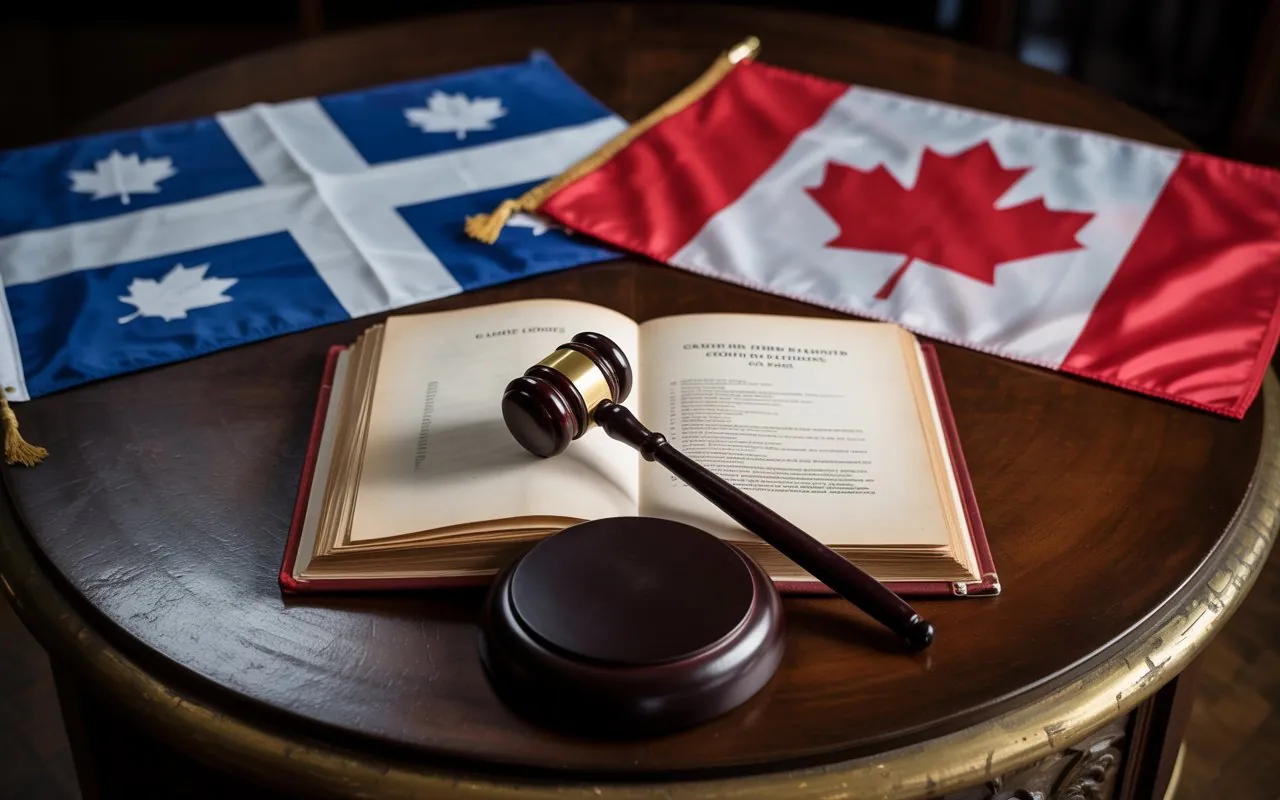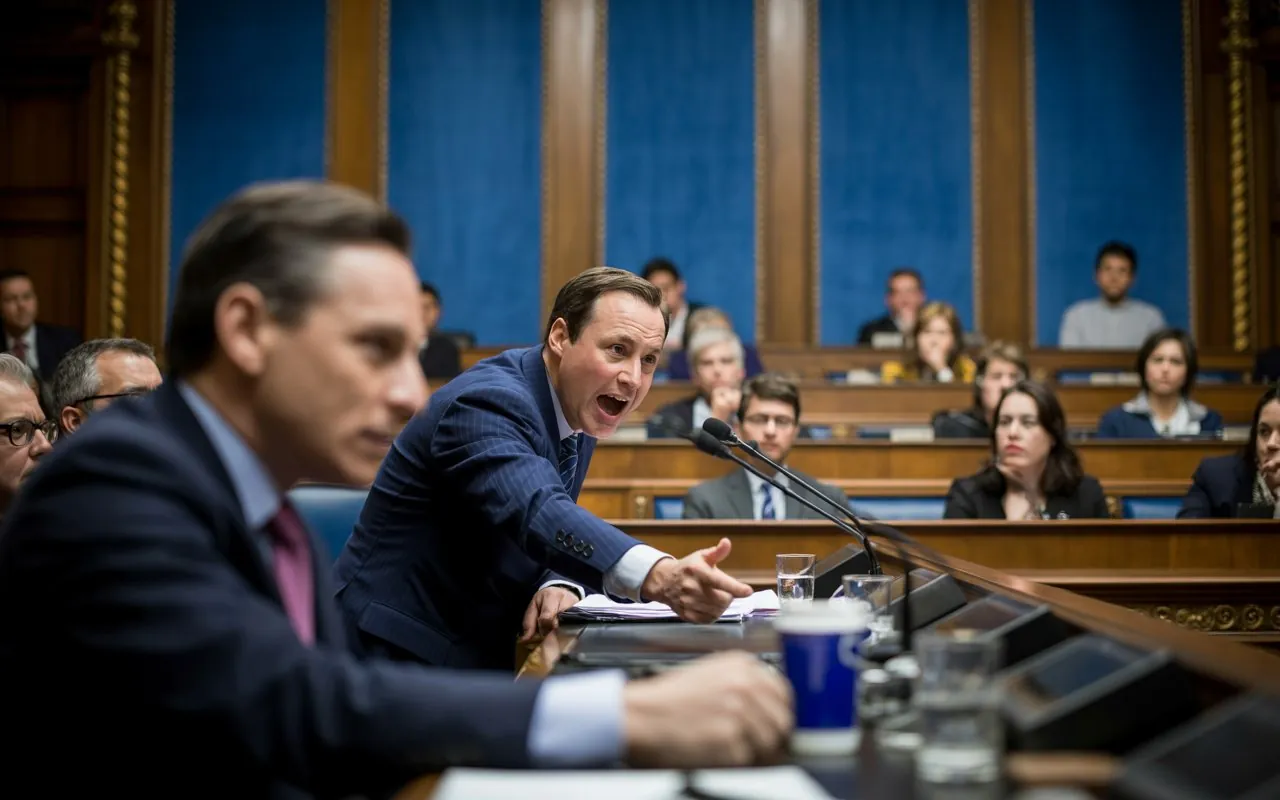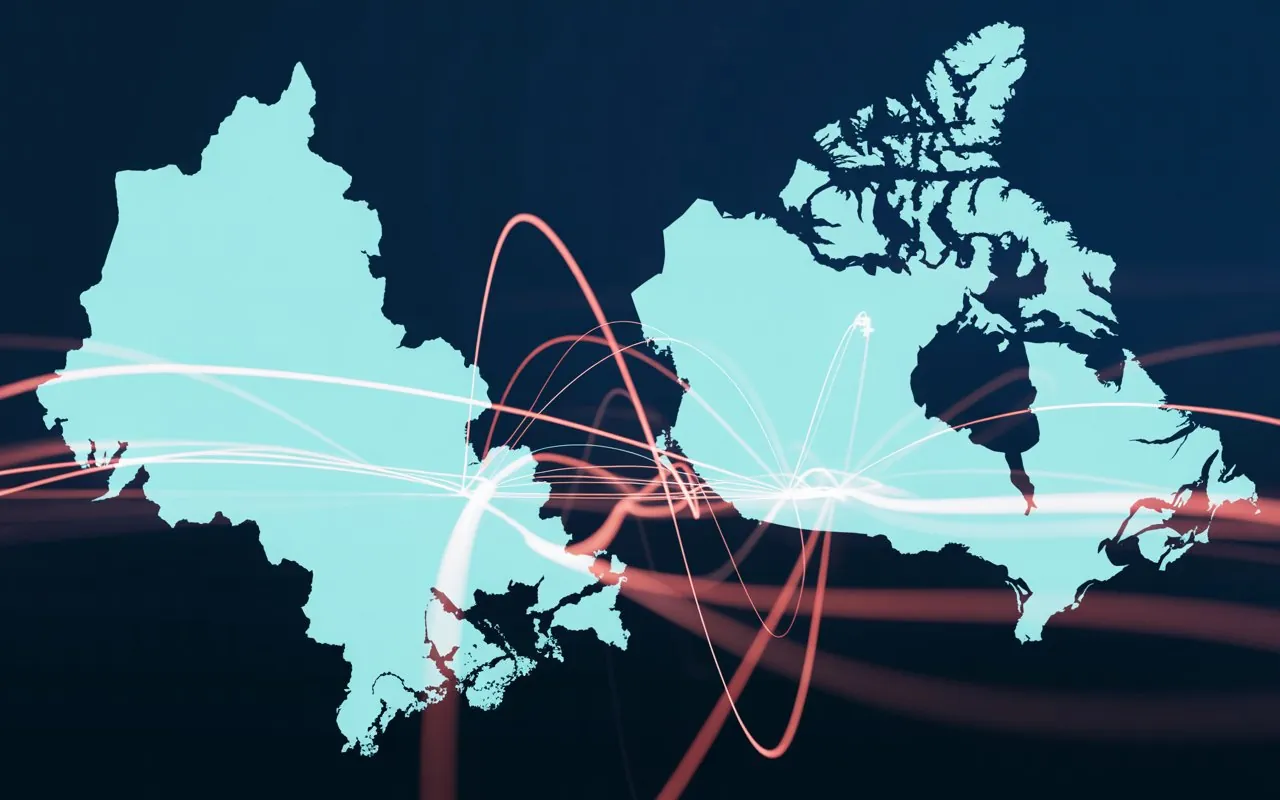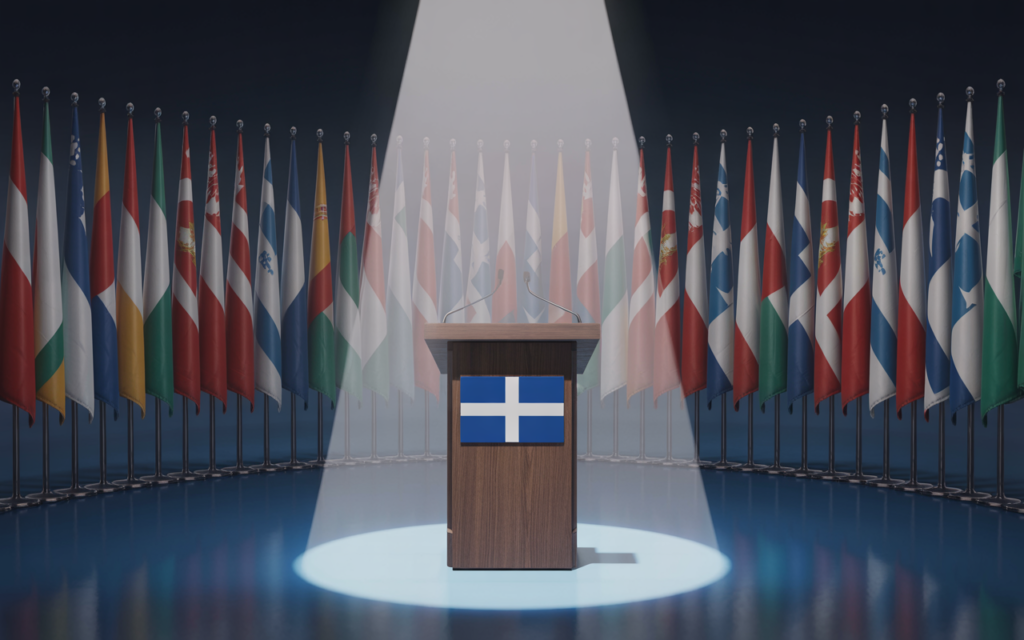The morning mist rises over the St. Lawrence River as the city of Quebec awakens, its cobblestone streets echoing with the sounds of both French and English. This beautiful province, with its distinct culture and fierce pride, has long harbored dreams that extend far beyond its current borders. For decades, a fundamental question has shaped Canadian politics, sparked heated debates, and captured international attention: can Quebec separate from Canada? This isn’t merely an academic exercise or a relic of the past; it’s a living, breathing question that continues to influence elections, policy decisions, and the very fabric of Canadian society.
This comprehensive guide will take you through the complex landscape of Quebec independence, examining the historical context, legal frameworks, political movements, and practical realities that surround this pivotal question. Whether you’re a student of Canadian politics, a curious observer of international affairs, or someone seeking to understand one of the world’s most fascinating sovereignty movements, this article will provide you with the knowledge and insights needed to grasp the full scope of whether can Quebec separate from Canada remains a viable possibility in the modern era.
The Historical Foundation: Understanding Quebec’s Quest for Independence
To truly comprehend the modern debate about whether can Quebec separate from Canada, we must first journey back through the pages of history. Quebec’s desire for independence didn’t emerge overnight; it’s rooted in centuries of cultural, linguistic, and political struggles that have shaped the province’s identity.

The Quiet Revolution and Its Aftermath
The 1960s marked a turning point in Quebec’s relationship with the rest of Canada. The Quiet Revolution transformed Quebec from a traditional, church-dominated society into a modern, secular province with a strong sense of its own identity. This period saw the emergence of a new Quebec nationalism that would fundamentally alter the discussion around can Quebec separate from Canada.
During this time, Quebec began to assert greater control over its own affairs, demanding recognition as a distinct society within Canada. The provincial government took control of education, healthcare, and economic development, creating institutions that reflected Quebec’s unique character. This period laid the groundwork for the modern independence movement and established the political and intellectual framework that continues to fuel debates about whether can Quebec separate from Canada.
The Birth of Modern Separatism
The creation of the Parti Québécois in 1968 under René Lévesque marked the beginning of serious political efforts to achieve independence. Lévesque’s vision of sovereignty-association proposed that Quebec could become an independent nation while maintaining economic ties with Canada. This concept introduced a nuanced approach to the question of can Quebec separate from Canada, suggesting that independence didn’t necessarily mean complete separation from all Canadian institutions.
The PQ’s rise to power in 1976 brought the independence question to the forefront of Canadian politics. For the first time, a provincial government was explicitly committed to holding a referendum on sovereignty, making the theoretical question of can Quebec separate from Canada a practical political reality that would dominate Canadian politics for decades to come.
The Legal Framework: Can Quebec Separate from Canada Under Canadian Law?
Understanding the legal dimensions of Quebec independence is crucial to answering whether can Quebec separate from Canada. The Canadian legal system, with its complex interplay of federal and provincial powers, constitutional requirements, and judicial interpretations, creates a specific framework within which any independence movement must operate.

Constitutional Requirements and the Rule of Law
The Canadian Constitution doesn’t explicitly address the question of how a province might leave Confederation. This constitutional silence has led to extensive legal debate about the mechanisms through which can Quebec separate from Canada might be achieved. The Supreme Court of Canada provided crucial guidance in its 1998 Reference re Secession of Quebec, which established important legal principles while stopping short of providing a clear roadmap for independence.
The Court ruled that Quebec cannot unilaterally secede from Canada under either Canadian or international law. However, it also established that if a clear majority of Quebecers voted “yes” on a clear question about independence, the rest of Canada would have a constitutional obligation to negotiate. This ruling fundamentally shaped the legal understanding of can Quebec separate from Canada by establishing that independence would require negotiation rather than unilateral action.
The Clarity Act and Its Implications
In response to the Supreme Court’s ruling, the federal government passed the Clarity Act in 2000, which established criteria for what would constitute a clear question and a clear majority in any future referendum. This legislation directly addresses the procedural aspects of can Quebec separate from Canada by requiring that any referendum question be unambiguous and that the majority supporting independence be substantial enough to clearly indicate the will of the population.
The Clarity Act also stipulates that the federal government would only enter into negotiations if these conditions were met, and that any negotiations would need to address complex issues including borders, Indigenous rights, federal assets and liabilities, and the rights of minorities. These requirements highlight the legal complexity surrounding the question of can Quebec separate from Canada and demonstrate that independence would involve far more than a simple referendum vote.
Provincial Legislation and Quebec’s Response
Quebec responded to the Clarity Act with its own legislation, asserting the province’s right to determine the terms of any referendum and rejecting federal interference in what it considers a provincial matter. This legislation reflects Quebec’s position that the question of can Quebec separate from Canada should be decided by Quebecers themselves, without federal government involvement in setting the terms of the debate.
The ongoing tension between federal and provincial interpretations of the legal framework demonstrates that the question of can Quebec separate from canada remains legally complex and politically contentious. While the Supreme Court has provided general principles, the practical application of these principles in a real independence scenario would likely involve significant legal and political challenges.
The Political Landscape: Current Movements and Party Positions
The political dimension of Quebec independence has evolved significantly since the height of the sovereignty movement in the 1990s. Understanding the current political landscape is essential to assessing whether can Quebec separate from Canada remains a viable political option in the contemporary era.

The Bloc Québécois and Federal Politics
At the federal level, the Bloc Québécois continues to advocate for Quebec independence, though its influence has waned since its peak in the 1990s. The party’s presence in Parliament serves as a constant reminder of the independence question and ensures that federal politicians must continue to address whether can Quebec separate from Canada. However, the Bloc’s reduced seat count and changing political priorities have diminished its ability to make independence a central issue in federal politics.
The Bloc’s strategy has evolved to focus on defending Quebec’s interests within the current federal system while maintaining its long-term commitment to independence. This approach reflects the reality that immediate independence may not be politically feasible, but it keeps the question of can Quebec separate from Canada alive in federal political discourse.
Provincial Politics and the PQ’s Challenges
The Parti Québécois, once the dominant force in Quebec politics, has faced significant challenges in recent decades. The party’s electoral fortunes have declined, and it has struggled to maintain relevance in a political landscape where other issues often take precedence over independence. This decline has directly impacted the political viability of the question can Quebec separate from Canada.
Recent PQ leaders have attempted to revitalize the independence movement by proposing new approaches to sovereignty and addressing contemporary concerns about globalization, immigration, and economic development. However, the party’s reduced influence in the National Assembly has limited its ability to advance the independence agenda and has made the question of can Quebec separate from Canada less prominent in provincial politics.
The CAQ and Autonomist Alternatives
The rise of the Coalition Avenir Québec (CAQ) under François Legault has introduced a new dynamic to Quebec politics. The CAQ advocates for increased autonomy within Canada rather than outright independence, offering an alternative to voters who want greater Quebec empowerment but aren’t ready to support complete separation. This position creates a middle ground that may reduce support for the more definitive answer to can Quebec separate from Canada.
The CAQ’s electoral success demonstrates that many Quebecers are interested in greater autonomy but may not be ready to take the final step toward independence. This political reality complicates the question of can Quebec separate from Canada by suggesting that there may be other ways to address Quebec’s desire for greater self-determination without full separation.
Economic Considerations: The Financial Reality of Independence
One of the most crucial factors in determining whether can Quebec separate from Canada is the economic impact of independence. The financial implications of separation would be enormous, affecting everything from currency and trade to government finances and economic growth.

Currency and Monetary Policy
An independent Quebec would need to establish its own currency or negotiate to continue using the Canadian dollar. The currency question is central to understanding whether can Quebec separate from Canada would be economically viable. Creating a new currency would involve significant costs and risks, including potential devaluation and inflation. Continuing to use the Canadian dollar would require agreement from the rest of Canada and would limit Quebec’s monetary policy independence.
The European Union’s experience with the euro provides some guidance on currency unions between sovereign states, but the specific circumstances of Quebec independence would create unique challenges. The currency question remains one of the most complex economic issues surrounding whether can Quebec separate from Canada could be successfully implemented.
Trade Relationships and Economic Integration
Quebec’s economy is deeply integrated with the rest of Canada and with the United States through NAFTA and its successor agreements. Independence would require renegotiating these trade relationships, potentially creating economic disruptions that could significantly impact Quebec’s prosperity. The question of can Quebec separate from Canada must therefore consider the economic costs of disentangling these complex trade relationships.
An independent Quebec would need to negotiate new trade agreements with Canada, the United States, and other countries. While this is certainly possible, the process would be complex and time-consuming, potentially creating uncertainty that could harm Quebec’s economy during the transition period.
Federal Transfers and Fiscal Capacity
Quebec currently receives significant federal transfers, including equalization payments that help support provincial programs. Independence would eliminate these transfers, requiring Quebec to either reduce services or increase taxes to maintain current program levels. This fiscal reality is a crucial factor in assessing whether can Quebec separate from Canada would be economically beneficial for Quebec.
The province would also need to assume responsibility for federal programs currently delivered in Quebec, including employment insurance, old age security, and various social programs. Taking on these responsibilities would require significant administrative capacity and financial resources, adding to the economic complexity of the question can Quebec separate from Canada.
Cultural and Social Factors: The Heart of the Independence Movement
Beyond the legal and economic considerations, the question of can Quebec separate from Canada is fundamentally driven by cultural and social factors that reflect Quebec’s unique identity within North America.

Language and Cultural Preservation
The preservation of French language and culture has been a central motivation for Quebec independence since the movement’s inception. Many independence supporters argue that only as a sovereign nation can Quebec fully protect and promote its French character. This cultural imperative adds an emotional dimension to the question of can Quebec separate from Canada that goes beyond mere political or economic calculations.
Quebec’s language laws, including the Charter of the French Language, demonstrate the province’s commitment to protecting its linguistic identity. However, independence supporters argue that these measures are insufficient and that full sovereignty is necessary to ensure the long-term survival of French culture in North America.
Immigration and Cultural Integration
Quebec’s approach to immigration and cultural integration differs significantly from the rest of Canada’s multiculturalism policy. The province promotes interculturalism, which emphasizes integration into Quebec’s French-speaking majority culture. This different approach to diversity raises questions about whether can Quebec separate from Canada would better serve the province’s vision of cultural development.
An independent Quebec would have complete control over its immigration policy, allowing it to select immigrants who are more likely to integrate into French-speaking society. This control over immigration is seen by many independence supporters as essential to maintaining Quebec’s cultural distinctiveness and demographic balance.
Generational Differences and Changing Attitudes
Support for independence varies significantly across generational lines, with older Quebecers generally more supportive than younger ones. This generational divide has important implications for the long-term viability of the independence movement and the question of can Quebec separate from Canada. Younger Quebecers, who have grown up in a more globalized world, may be less concerned with the traditional cultural and political grievances that motivated earlier independence movements.
However, new issues such as climate change, indigenous rights, and economic inequality may create different motivations for independence among younger Quebecers. The evolution of these generational attitudes will play a crucial role in determining whether can Quebec separate from Canada remains a relevant political option in the future.
International Perspectives: How the World Views Quebec Independence
The international dimension of Quebec independence adds another layer of complexity to the question of can Quebec separate from Canada. The global community’s response to Quebec independence would significantly impact the success of any independence movement.

Recognition and Diplomatic Relations
An independent Quebec would need to establish diplomatic relations with countries around the world and seek recognition as a sovereign state. While this process would likely be successful given Quebec’s democratic institutions and stable society, it would require significant diplomatic effort and resources. The international community’s response would be crucial to determining whether can Quebec separate from Canada could be achieved smoothly and peacefully.
France has historically been sympathetic to Quebec independence, and French support would likely be forthcoming for an independent Quebec. However, the position of other major powers, including the United States, the United Kingdom, and other European nations, would be crucial to Quebec’s international success.
International Organizations and Membership
An independent Quebec would need to apply for membership in international organizations such as the United Nations, NATO, NAFTA, and various economic and cultural organizations. While membership would likely be granted eventually, the process could be time-consuming and politically complex. The question of can Quebec separate from Canada must therefore consider the international administrative burden of establishing a new sovereign state.
Some international organizations might require Quebec to reapply for membership even if Canada had previously been a member. This could create gaps in Quebec’s international participation that might harm its economic and political interests during the transition period.
The Path Forward: Scenarios and Possibilities
Given the complex factors surrounding Quebec independence, it’s important to consider various scenarios for how the question of can Quebec separate from Canada might be resolved in the future.

The Referendum Scenario
The most likely path to independence would involve another referendum, similar to those held in 1980 and 1995. For this scenario to succeed, independence supporters would need to build a broad coalition that could win a clear majority on a clear question. The question of can Quebec separate from Canada would be directly put to Quebec voters, who would need to decide whether to take the final step toward sovereignty.
A successful referendum would trigger the constitutional negotiation process outlined by the Supreme Court of Canada. These negotiations would be complex and contentious, involving issues such as borders, debt division, minority rights, and the future relationship between Quebec and Canada.
The Gradualist Approach
Another possible scenario involves a gradual increase in Quebec’s autonomy within the Canadian federation. This approach would involve negotiating additional powers and responsibilities for Quebec while maintaining the basic federal structure. This path might address some of the concerns that motivate independence supporters without requiring a definitive answer to can Quebec separate from Canada.
The gradualist approach has the advantage of being less disruptive than outright independence while still addressing Quebec’s desire for greater self-determination. However, it would require cooperation from the federal government and other provinces, which might be difficult to achieve.
The Status Quo Plus Scenario
A third possibility involves maintaining the current federal structure while making incremental changes to address Quebec’s specific concerns. This might include constitutional recognition of Quebec as a distinct society, enhanced language protections, or increased federal flexibility in areas of provincial jurisdiction. This approach would essentially answer can Quebec separate from Canada with “not necessary” by making Canada work better for Quebec.
Conclusion: The Ongoing Journey
The question of can Quebec separate from Canada remains one of the most fascinating and complex issues in contemporary politics. While the legal framework exists for independence through negotiation, the political, economic, and social realities make immediate independence unlikely in the current environment.

The independence movement continues to evolve, adapting to new challenges and opportunities while maintaining its core commitment to Quebec’s sovereignty. Whether can Quebec separate from Canada becomes a reality will depend on the ability of independence supporters to build a broad coalition, address legitimate concerns about the economic and social costs of separation, and convince a majority of Quebecers that independence is both necessary and beneficial.
The journey toward answering can Quebec separate from Canada definitively continues, shaped by changing political landscapes, evolving economic realities, and the enduring strength of Quebec’s distinct culture and identity. Whatever the future holds, this question will remain central to Canadian politics and to Quebec’s ongoing quest for self-determination.
As we look to the future, the question of can Quebec separate from Canada serves as a reminder of the complexity of modern federalism and the ongoing challenge of balancing unity with diversity in democratic societies. The answer to this question will ultimately be determined by the people of Quebec themselves, as they continue to navigate the delicate balance between preserving their unique identity and participating in the broader Canadian federation.